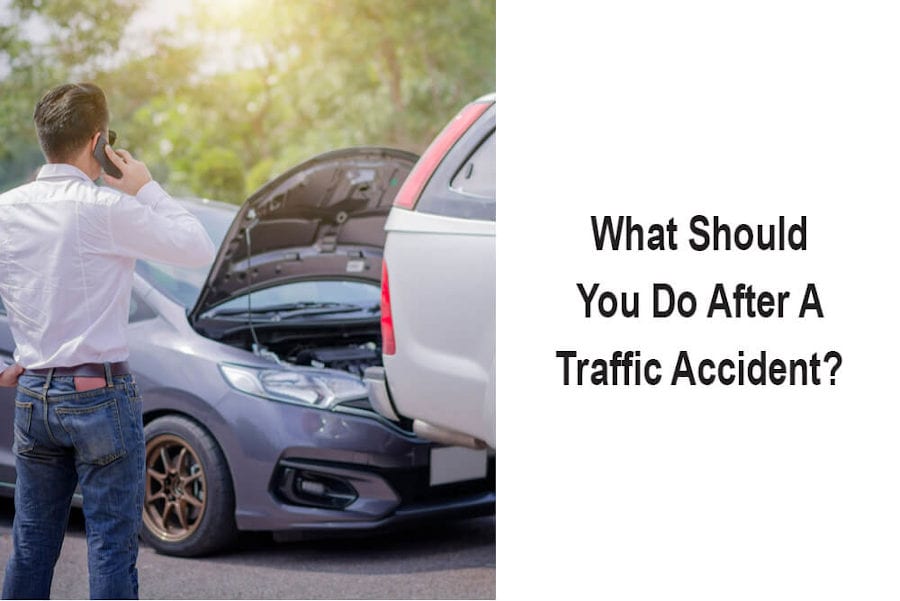What is a Moving Violation?
If you are ticketed for a moving violation in the State of Illinois, instead of paying the ticket, contact a Chicago traffic ticket attorney as quickly as possible. A moving violation is a traffic offense that is assigned penalty points that count toward a driver’s license suspension in Illinois.
It’s a serious matter. Even a first offense for texting or talking on a cell phone while driving is a moving violation in Illinois. What are your rights if you receive a ticket for violating the Illinois cell phone law? Can you successfully challenge a cell phone ticket? What steps can you take?
For the answers that every Illinois driver needs, keep reading this brief discussion of cell phone tickets, moving violations, and your rights, but if you are personally ticketed for using a cell phone while driving, you will also need to contact a Chicago traffic ticket lawyer promptly.
How Dangerous is Texting While Driving?
In 2020, more than 190 people lost their lives in distracted driving accidents on Illinois streets and highways, and the number one distraction for drivers, according to statistics published by the Governors Highway Safety Association, is cell phones and other electronic devices.
The National Highway Traffic Safety Administration estimates that ten percent of all Illinois motorists are using a cell phone at any given moment while they’re driving in this state. Illinois is one of nineteen states that entirely ban the use of handheld devices while operating a vehicle.
What Does the Illinois Cell Phone Law Provide?
The cell phone law prohibits driving while operating electronic communication devices including hand-held wireless phones, laptops, and other devices. Navigation or GPS systems that have been directly integrated into a vehicle are exempt from the Illinois cell phone law.
The Illinois cell phone law also allows for several other narrow exceptions. For example, you are legally allowed to use a cell phone in your vehicle if:
- You are calling 911 for emergency assistance.
- You are using the cell phone “hands-free” or wearing a headset.
- You are parked on the shoulder of a street or highway.
- Traffic is obstructed or stopped and your vehicle is in neutral or park.
- Your cell phone starts or stops a call with a single button.
What Are the Penalties for Cell Phone Use While Driving?
In Illinois, if the court finds that you are guilty of using a cell phone while driving, in most cases, you will pay a costly fine and penalty points will be placed on your driving record. Moving violations increase auto insurance rates, and in some cases, you could face a criminal charge.
If you cause an accident that results in “great bodily harm, permanent disability, or disfigurement,” you could be charged with a Class A misdemeanor. But if you cause an accident that results in a fatality while you are using a cell phone, you could face a Class 4 felony charge.
Whether the charge against you is a moving violation or a criminal offense, contact a Chicago traffic ticket attorney at once if you are ticketed or charged for a violation of the Illinois cell phone law or for any other moving violation in the greater Chicago area.
How Do Penalty Points Work?
When an Illinois driver who is age 21 or older receives three tickets for moving violations within a period of twelve months, that driver’s license will be suspended. The number of points will determine the length of the driver’s license suspension or whether the license will be revoked.
If you’re 21 or older, and you compile 110 points or more within twelve months, your license is revoked. When the revocation period concludes, your license is not automatically reinstated. Instead, a reinstatement hearing is conducted by the Illinois Secretary of State’s office.
What Are the Rules for Younger Drivers and Commercial Drivers?
The rules are slightly different for drivers who are less than 21 years old. If a driver under age 21 receives two tickets for moving violations – and convictions for those moving violations – within a twenty-four month period, that driver’s license will be revoked or suspended.
If you hold a commercial driver’s license (CDL) in Illinois, a conviction for violating the cell phone law is regarded as a “serious traffic violation.” Your CDL could be suspended or revoked, and your future as a commercial driver could be at stake.
That’s why a commercial driver who is charged with a violation of the Illinois cell phone law must have – as quickly as possible – the advice and services that a Chicago traffic ticket lawyer will provide.
How Will an Attorney Help You?
Convictions for moving violations typically stay on your driving record in Illinois for five years. Avoiding moving violations – and avoiding convictions for those violations – is the way to keep your driving privilege in this state. You don’t want to start putting points on your driving record.
A moving violation conviction may be penalized with a fine, a court order to complete a safe driving course, and more costly auto insurance. If you drive for a living or if your work requires driving, you may have to seek other employment.
Contact a traffic attorney in Chicago at once if:
- You are ticketed for violating the Illinois cell phone law.
- You receive a ticket for any other moving violation.
- Your driver’s license has been revoked, and you are seeking to reinstate it.
Why Not Just Pay the Ticket?
If you are ticketed for a violation of the Illinois cell phone law, or for any moving violation, it may seem like paying the ticket by mail is the expedient way to handle the matter. Think again. You are in effect pleading guilty and accepting a conviction that will go on your driving record.
The negative results of pleading guilty and accepting a conviction – for your employment, your auto insurance, and your driver’s license – could be substantial, but your lawyer will take action to have the ticket dismissed or to win a not guilty verdict and keep your driving record clean.
The process begins by calling a traffic ticket lawyer in the Chicago area for a free, no-obligation case review. You’ll receive personalized legal advice and learn how the law applies in your own situation. If you have a ticket pending, or if you are ticketed in the future, make that call at once.






